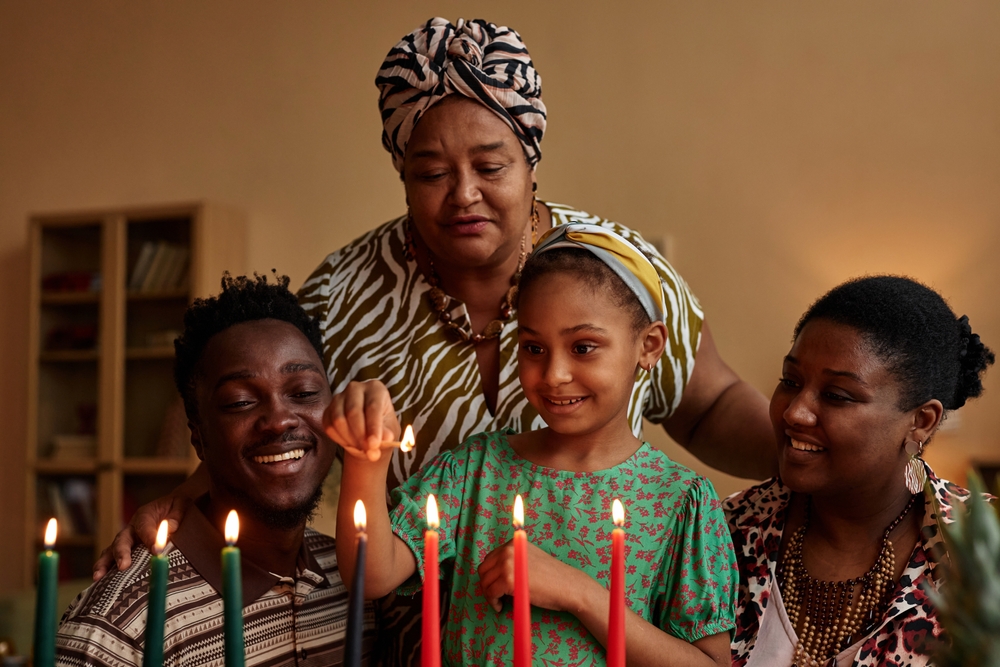Kwanzaa, a holiday that celebrates African heritage and culture, is often misunderstood and misrepresented. Many believe that Black families do not observe this important cultural holiday, but the reality is quite different. For numerous families, Kwanzaa is a cherished tradition that fosters unity, cultural pride and a connection to African roots. This article explores the significance of Kwanzaa and why it remains a vital observance for many Black families across the United States.
The origins of Kwanzaa
Kwanzaa was established in 1966 by Maulana Karenga, an Africana Studies professor, in response to the social upheaval following the Watts Rebellion in Los Angeles. The holiday was created to celebrate Black culture and promote unity among African Americans. It is observed from Dec. 26 to Jan. 1, culminating in a feast known as Karamu. Each day of Kwanzaa is dedicated to one of the seven principles, known as the Nguzo Saba, which include Unity, Self-Determination, Collective Work and Responsibility, Cooperative Economics, Purpose, Creativity and Faith.
Personal stories of Kwanzaa observance
Many families have their unique stories about how they came to celebrate Kwanzaa. For instance, Keron Alleyne, co-chair of Operation P.O.W.E.R. in Brooklyn, began celebrating Kwanzaa during his time at Utica University. He recalls how the Black Student Union’s dinner honoring the holiday’s principles opened his eyes to the importance of Kwanzaa as a gateway to understanding Black history and culture. Now, as a father, he ensures that his son grows up with a strong sense of cultural identity.
Aminata Umoja, founder of the Kilombo Academic and Cultural Institute in Atlanta, shares her journey with Kwanzaa, which began when her brother introduced her to the holiday at the age of 17. Growing up in Los Angeles, she was surrounded by the Black Power Movement, which deeply influenced her appreciation for Kwanzaa. Today, she continues to celebrate the holiday with her family, using it as a platform to discuss the challenges facing the Black community and how to address them collectively.
Community and family celebrations
For Tunu Hill, Kwanzaa has become a family tradition that she shares with her husband and three children. Having participated in Kwanzaa celebrations at her church, the Shrine of the Black Madonna, she emphasizes the importance of community in these observances. Hill believes that Kwanzaa is a powerful way to claim heritage and foster a sense of collective responsibility among families. She actively incorporates Kwanzaa principles into her children’s education, ensuring that they understand their cultural history despite societal challenges.
The importance of Kwanzaa today
Despite the challenges posed by laws targeting discussions about race and racism, many Black families continue to embrace Kwanzaa as a means of preserving their history and culture. This commitment to cultural education and celebration is vital for the younger generation, as it instills a sense of pride and belonging.
Kwanzaa is more than just a holiday; it is a celebration of identity, community and resilience. For many Black families, it serves as a reminder of their rich heritage and the importance of unity in the face of adversity. As we continue to navigate a world that often seeks to erase Black history, the observance of Kwanzaa stands as a powerful testament to the enduring spirit of the African American community. By celebrating Kwanzaa, families not only honor their past but also empower future generations to embrace their cultural identity with pride.
Kwanzaa is a vital cultural observance that fosters unity and pride among Black families. As more families share their stories and experiences, the significance of Kwanzaa will continue to grow, ensuring that this important tradition remains alive for generations to come.
















